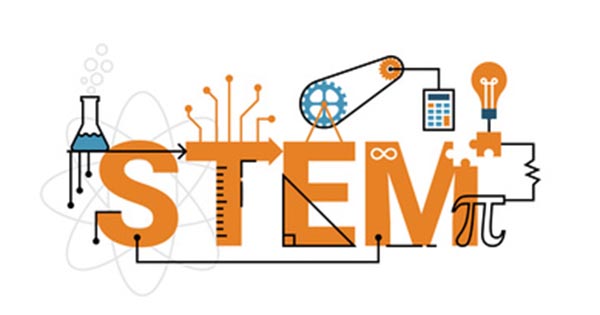 E
Ever since the Russians sent up Sputnik in 1957, our nation has been
obsessed with how well the U.S. measures up
against the rest of the world in STEM—Science, Technology, Engineering, and Mathematics.
But science and math courses are some of the most difficult to learn and to teach. The associated labs are expensive
in both time and money. Why should homeschoolers sacrifice scarce resources to study STEM subjects?
Apart from satisfying minimum state high-school graduation requirements in science and math, why shouldn’t
homeschool parents just leave STEM subjects to be learned if and when their students decide to major in them at
college?
Benefits of High-School STEM
Taking science and math in high school has many benefits, whether your student is planning on college or a more
hands-on career directly after high school, as I’m about to explain.
College admissions officials look closely at high-school science and math grades, as well as ACT and SAT scores.
Successfully completing rigorous math and science courses in high school sets your students apart from those who either
can’t cut it or don’t want to do the work.
Even if your children plan to major in liberal arts in college, good STEM grades will help them get in and improve
their scholarship chances.
Homeschool student: are you considering a STEM career? Then here’s some advice for what to do in high school.
Science
If you’re heading in the direction of any of the biological sciences, you will end up needing to master
introductory statistics. You also will impress admissions officials if you can complete a college-level calculus course
while in high school—whether it’s a distance-learning AP Calculus course, or a course you take for dual
credit from a local university or community college. Be certain you are up to the challenge, as a bad college grade
stays on your record. Also, one semester of college calculus covers the ground of two semesters of high-school calculus.
So you need to be able to learn at a speedier pace.
Science courses are, naturally, a must for future scientists. Your state might let you wiggle out of serious science
courses and still earn a diploma, but you’d be much better served by taking solid science courses every year in
high school.
Any actual science investigations you can complete during this time are a major plus. Kids who place high in the Intel
Science Talent Search or the Siemens Competition in Math, Science & Technology tend to have their pick of top science
scholarships. Realistically, you’ll need a capable mentor—probably a college professor—who is willing
to help guide your research, in order to compete at this level.
Of course, most teens don’t win prestigious national science competitions. Plugging away at what interests you,
and occasionally trotting out your work at local science fairs, when combined with good grades, test scores, and a few
more social extracurriculars, ought to be enough to get you into a good college science program.
Technology
Quite a few decent-paying jobs now exist in fields such as chemical technology. These require only a two-year
degree—often from a local community college that has a program in that specialty.
These don’t require the cost of an engineering degree, and it’s possible to enter college with just basic
math and go through one of these programs.
However, that basic math needs to be slick and quick! Don’t think it’s possible to struggle with fractions
and yet make it through college algebra and chemistry without fearful struggle.
Engineering
Among new college graduates, engineers make most of the top salaries.
Obviously, any young person planning a future engineering career should gobble up all the math possible in high
school. The better engineering schools expect you to have completed AP Calculus, or at least a rigorous precalculus
course, before attending.
Unless you’re heading in the direction of biomedical engineering, you might be able to evade a biology course.
However, you definitely should plan on taking the most advanced chemistry and physics courses available. And build
stuff! Familiarity with hand tools, measuring devices, draftsman equipment, and soldering irons is very helpful, not to
mention fun to the type of person who would make a good engineer. And in today’s world, knowing your way around
CAD/CAM software is a huge plus.
Math
You need to be able to handle advanced math in college in order to graduate with a business degree. You need at least
college algebra, and often statistics, for nursing and allied health degrees. Social-science majors need statistics. And
so on. There is no escaping it—buckle down and do the math!